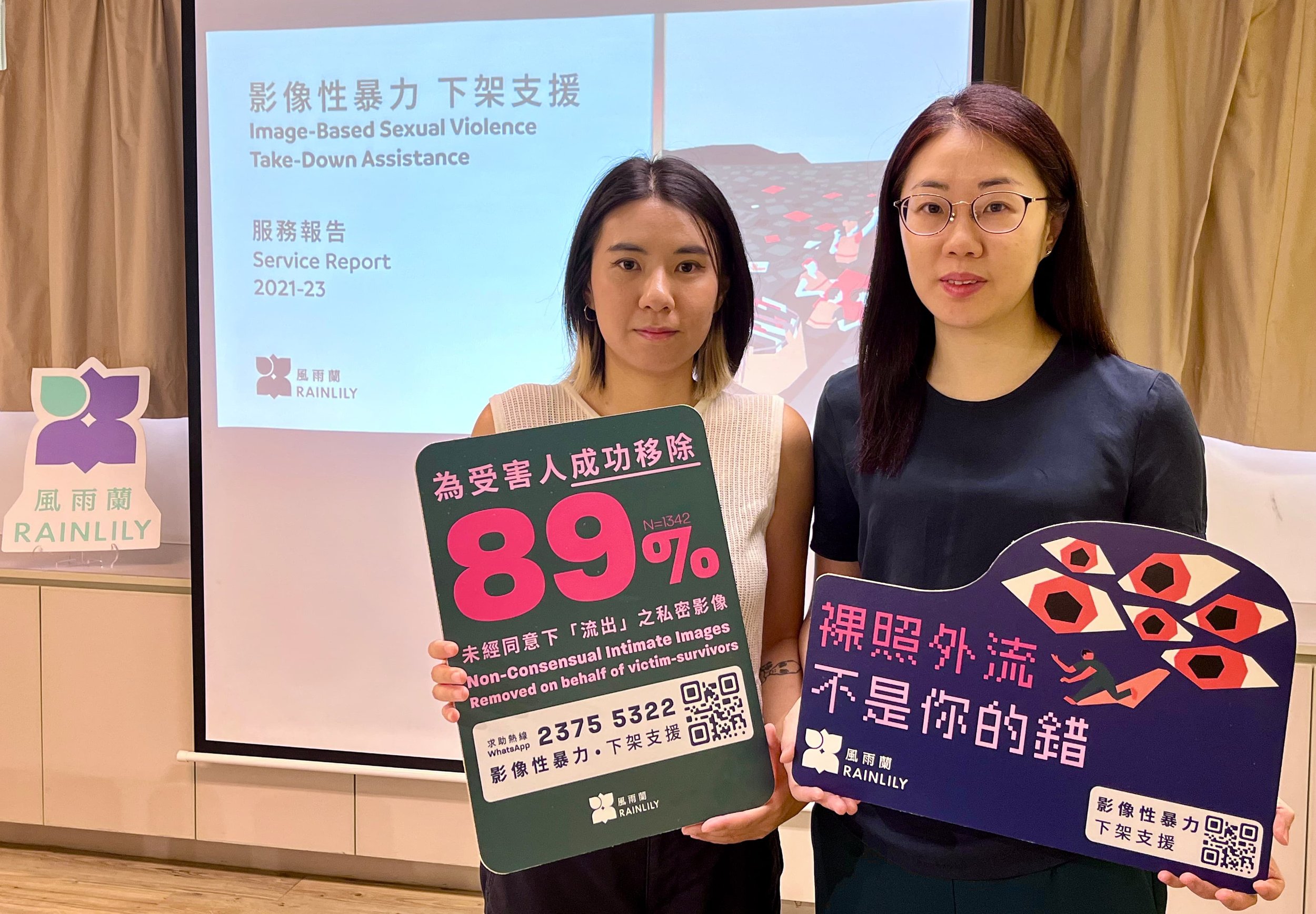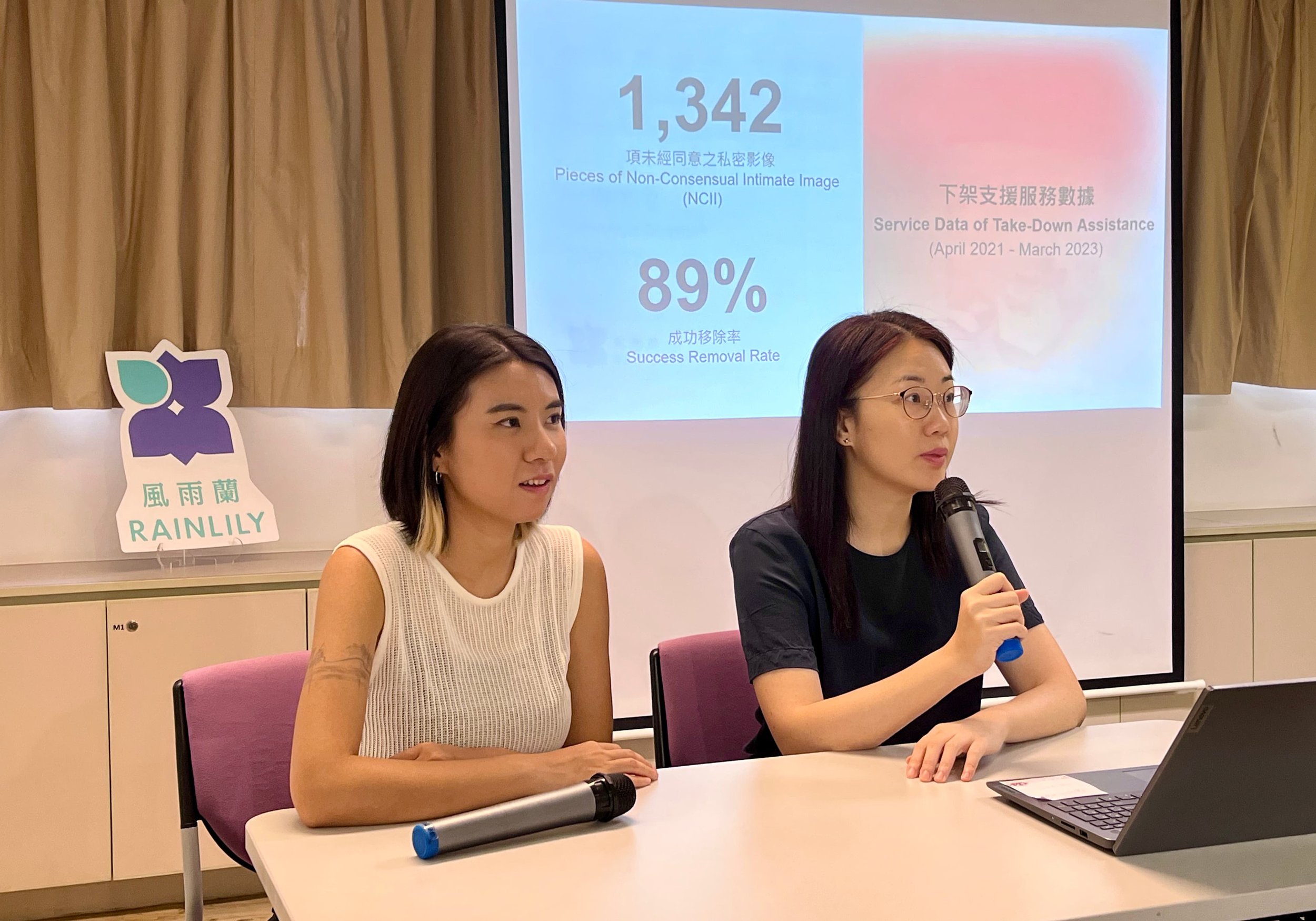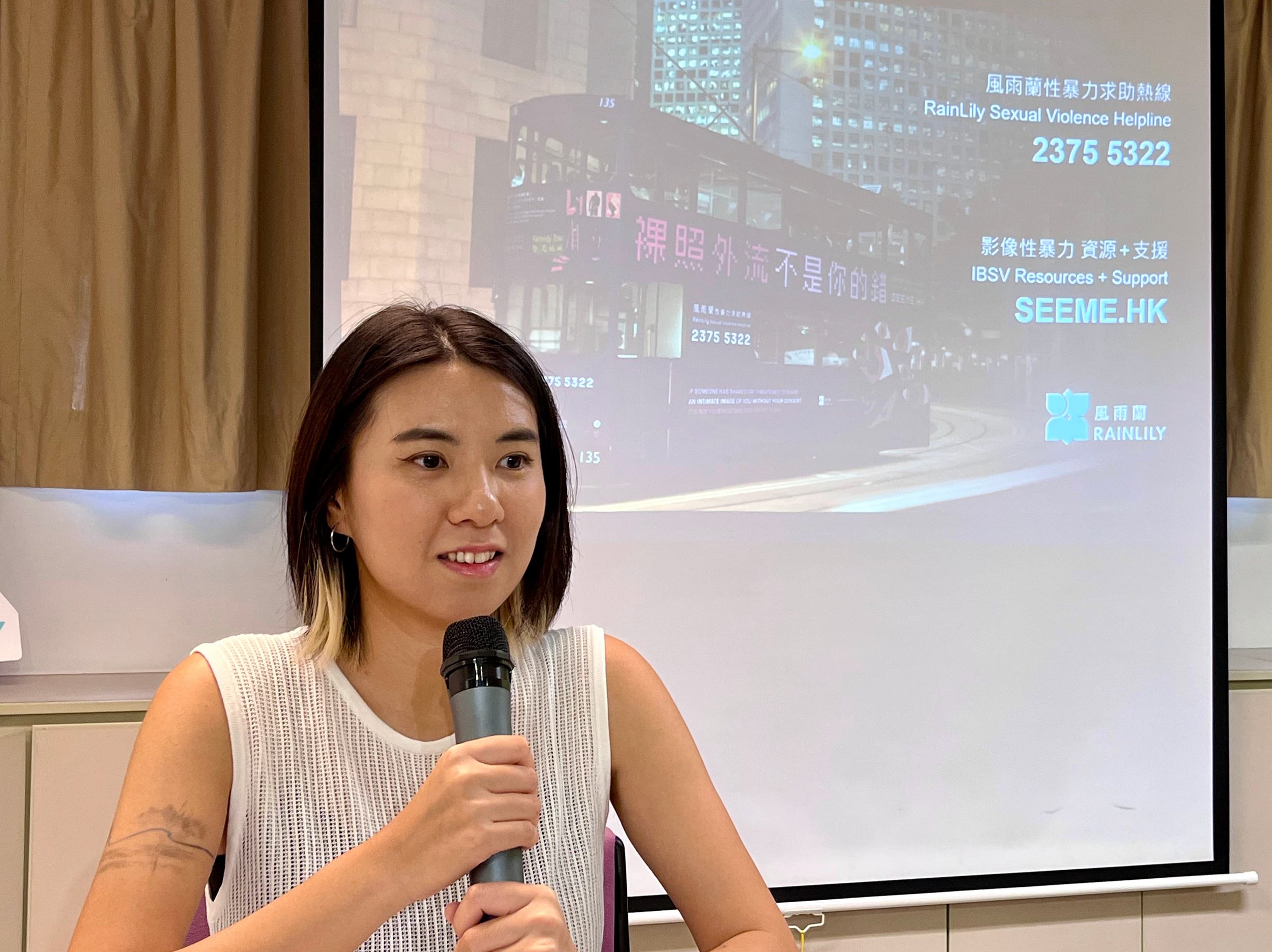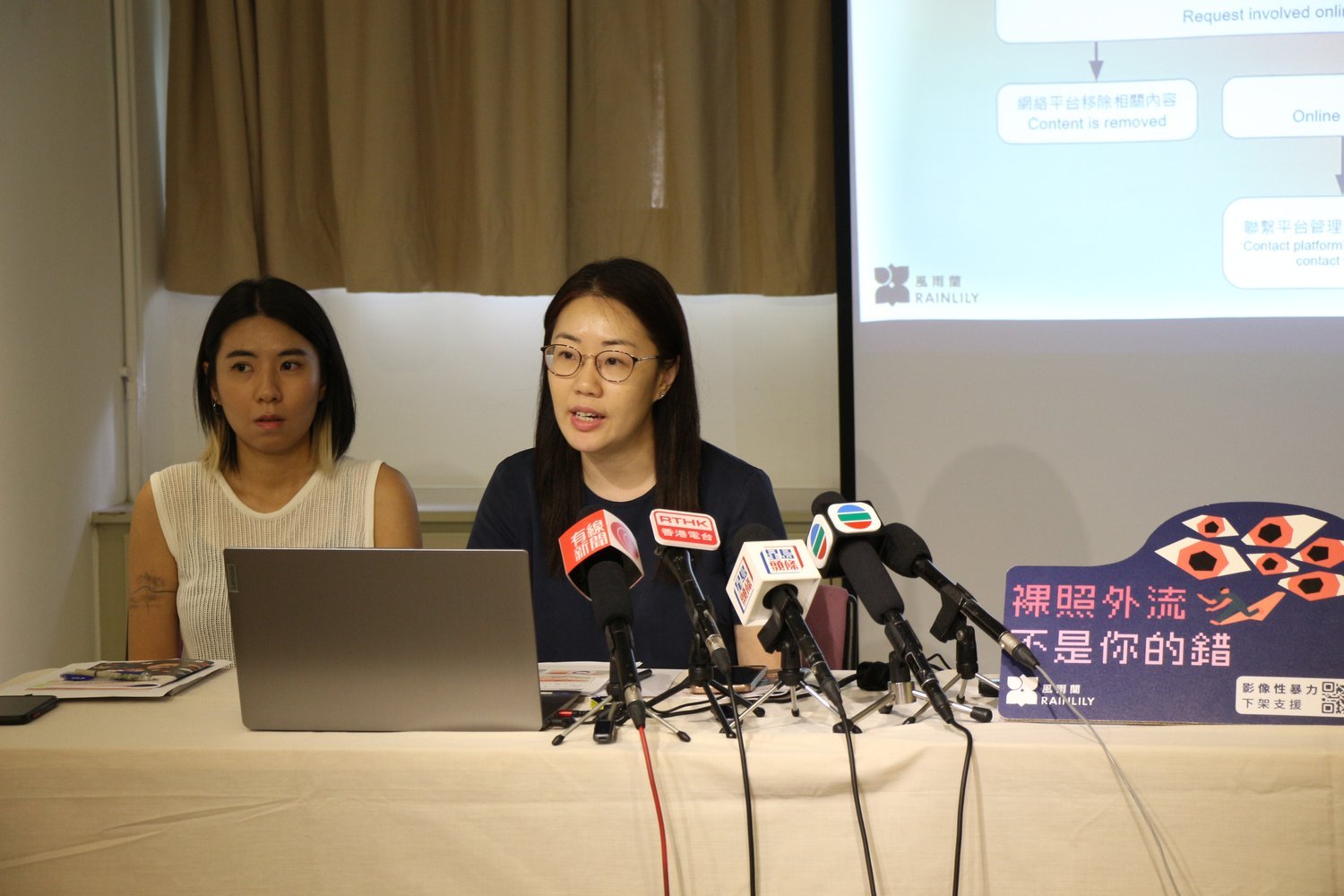RainLily's 'Take-Down Assistance' on Image-Based Sexual Violence contents sees 89% removal rate
'Take-Down Assistance' on Image-Based Sexual Violence contents sees 89% removal rate
RainLily calls on platforms and PCPD to act more proactively in providing support for victims
Hong Kong's sexual violence crisis centre, RainLily, has reported an increase in cases of image-based sexual violence over the past two service years. From April 2021 to March 2023, RainLily handled 646 request-for-assistance related to image-based sexual violence (IBSV), and provided "Take-Down Assistance" support to 1,342 non-consensual intimate images that were published online, removing 89% of them. Launched in 2021, "Take-Down Assistance (Ta-DA)" is an initiative to assist individuals whose intimate images have been distributed online without their consent to remove the content. RainLily also provides legal consultation, and assists victim-survivors to report to the Office of the Privacy Commissioner for Personal Data.
'Over the past two years, RainLily has received an increasing number of request-for-assistance for IBSV, particularly those involving the non-consensual distribution of intimate images. Despite the introduction of specific criminal offences in October 2021, RainLily's frontline experience suggests that those experienced non-consensual distribution and threatened distribution of intimate images are still hesitant to report such incidents. Many also see greater urgency on measures to end the spread of these images. RainLily has found that the "Take-Down Assistance" initiative helps victims-survivors to stop the spread of these images and avoid the risks of identity exposure and retraumatisation from self-reporting.' said Doris CHONG, Executive Director of RainLily.
'Of course it is hard to prevent the image from being shared repeatedly, but at least there is some action that I can take at that moment. It made me feel better, lessened my stress. One less person watching means one less person, one less website around means one less,' said Jenny (pseudonym), a service-user of 'Take-Down Assistance'.
Some service-users also experienced uncomfortable requests while attempting to seek image removal on their own. 'There was once an admin demanding me to prove my identity and asked "How would you prove that you are the person in the image? perhaps take some pictures for me to have a look". And then there was another time an admin wanted something in exchange in order to help me "I can help you, but what's there in return?" said Nick (pseudonym), also a service-user of 'Take-Down Assistance'.
'The "Take-Down Assistance" initiative faced challenges with platforms where non-consensual intimate images are often found. On Telegram, these channels often post links to content farm websites, where non-consensual intimate images that are branded as "leaks", the personal information of those involved, as well as fabricated stories surrounding the images are published together. These channels also have multiple sub-groups, where the same messages are spread across, making it more difficult to take down. Although these platforms have policies and reporting channels, they do not respond to and deal with removal requests effectively.' said Jacey KAN, Senior Advocacy Officer, RainLily.
Meanwhile, RainLily has found that many cases also considered seeking help from the Office of the Privacy Commissioner for Personal Data (PCPD), showing that victim-survivors and the public understand their intimate images as 'personal data'. However, under the current PCPD definition, sole distribution of intimate images without other kinds of personal data is not considered a breach, even if it involves the individual's facial features, making it difficult for victim-survivors to legally request removal on the ground of privacy.
'The PCPD should further review at what level intimate images can be defined as personal data, and assist those experienced non-consensual distribution of intimate images in a more proactive manner to live up to the public's expectations. We also suggest that the PCPD periodically review and publish complaint statistics related to non-consensual intimate images online, and proactively investigate and review online platforms where these contents are rampant to advance public understanding of the issue,' said Jacey KAN, who also called on online platforms and the internet industry to establish policies, handling guidelines, and industry standards to respond to non-consensual intimate images on the internet from different perspectives.





